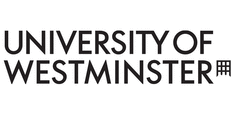The University of Westminster has co-created a role with their external caterers, Aramark: a Sustainable Food Assistant. The caterers and the university joint fund the role and the Sustainable Food Assistant splits their time between both the sustainability team and the catering team.
One common challenge with using external caterers at institutions is trying to influence catering practices, and relationships between external caterers and sustainability teams are adversarial at some institutions where they do not feel they share the same goals. Because there is a go-between member of staff at Westminster, the two departments constantly work on projects together and setting goals together through the institution’s Sustainable Food Action Plan.
The Sustainable Food Assistant believes this structure allows for a diplomatic approach, since both parties can feel their interests are being looked out for as Westminster moves towards improved environmental performance. He has found this useful when trying to implement operational changes on the ground, as site managers can feel like his suggestions are coming from a part of their own team, taking ownership of improvements, as opposed to having criteria imposed upon them by an external client.
Another benefit is access to data sets for both the university and the caterer. This allows, for example, a fuller picture of food-waste disposal as the Sustainable Food Assistant can draw raw tonnage of food-waste collection from the university’s waste data and compare this with Aramark’s data on reported wastage and units sold.
While there have been no major conflicts of interest where the Sustainable Food Assistant felt caught in the middle, influencing how food is sourced was identified as the biggest challenge. The external caterer’s supply chain is based on large corporate partnerships and menus are influenced, to a high degree, by the head office. This means there is little control over issues like organic or locally sourced food. Due to the uniqueness of the joint-funded role, engaging the supply chain has been a challenge as they are not used to working with a site-based sustainability operative. The challenges of having a mixed role like this have predominantly been at the corporate scale, though the Sustainable Food Assistant notes it is beneficial that the employment contract was with Aramark and not the university for this very reason, as it has given him access to supply chains he would not have has were his contract with the university.
Read more about sustainability at University of Westminster here.
If you are looking to engage with your Catering Department read the 'Engaging Professional Departments' Guides here. Or contact the EAUC-Scotland Team for further training, facilitated workshops or meetings.









 Except where otherwise stated, content on this site is
licensed under a Creative Commons Attribution 3.0 License.
Except where otherwise stated, content on this site is
licensed under a Creative Commons Attribution 3.0 License.
